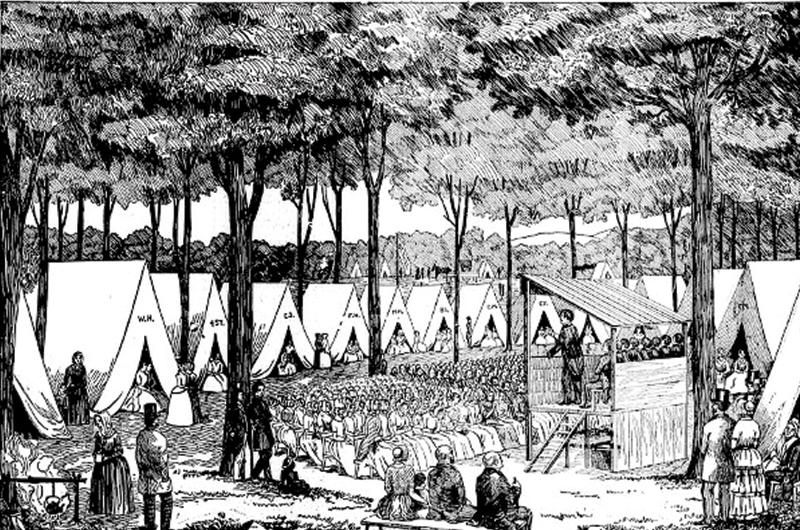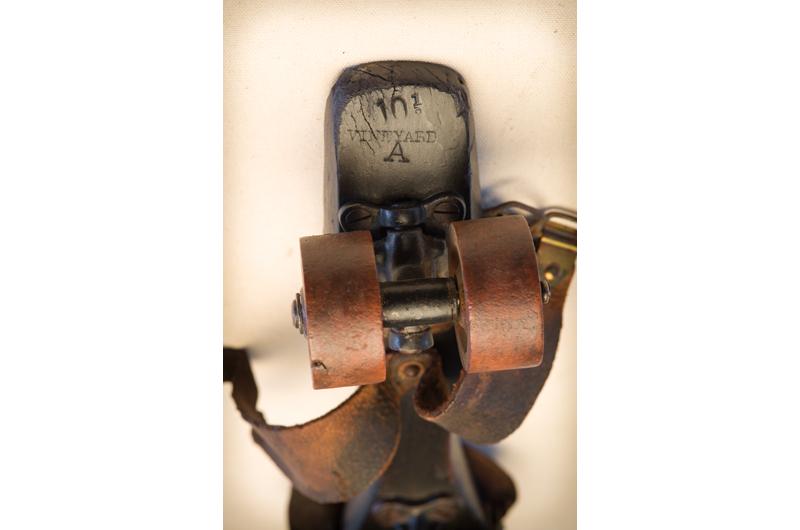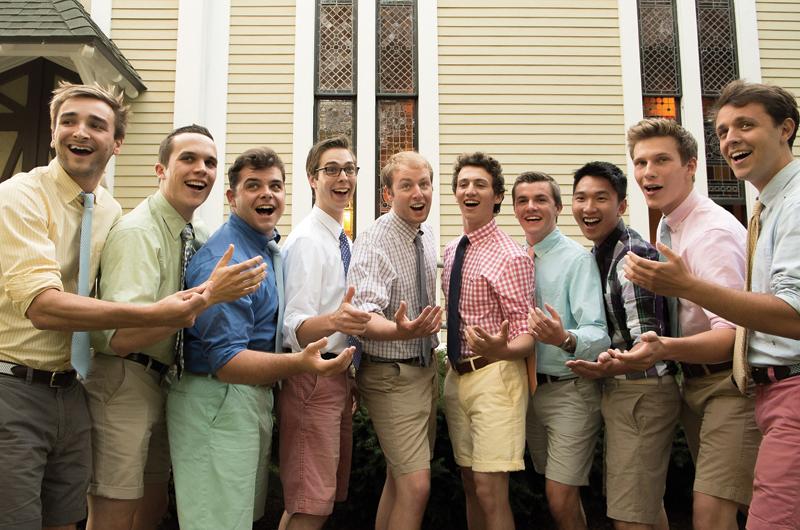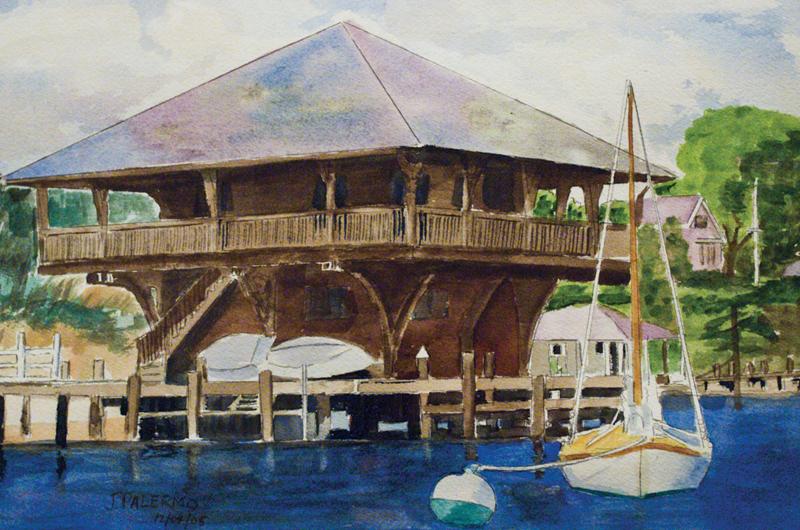
Vincent, Hebron: 1805–1890. Early exponent of the “you should have been here yesterday” theory of progress on the Vineyard. Born in Edgartown, he became a Methodist preacher in 1834 and eventually wrote a history of the Martha’s Vineyard Camp Meeting Association, which started in 1835. By 1870, however, Vincent was unhappy with the boom town that would become Oak Bluffs: “Oh how changed,” he wrote of the new crowd, “instead of a few hundreds of poor, humble followers of the Master, who came here to worship, dwelling in rough tents, we have now...mostly those of fashion, and many of wealth.”

Vineyard Roller Skate: Popular nineteenth-century roller skate created by Frank
E. Winslow, son of Winslow Skate Company owner Samuel Winslow. The father-son duo was well-known in the roller skating world and owned various rinks around the country, including the Vineyard Roller Skating Rink in Cottage City (Oak Bluffs) where the “Vineyard” skate was first introduced. “It is considered by all impartial experts as the best and most reliable ever manufactured, and is substantiated by the unanimous approval and praise of the general skating public,” the Leading Manufacturers and Merchants of the City of Boston wrote. Over the years new models were created with slightly different trucks, but they all followed the design of the “Vineyard,” which easily allowed skaters to attach their saddle shoes to the skate via leather straps. By 1889, the Winslow Skate Company was able to produce some 1,200 pairs of skates per day, according to production figures: forty styles of ice skates and fifteen styles of roller skates. They weren’t cheap: prices ranged from $4 to $6, roughly $110 by today’s standards.

Vineyard Sound: The body of water separating the north shore of the Vineyard from Cape Cod and the Elizabeth Islands. Secondarily, a ten-man a cappella group that was first formed twenty-five summers ago by a collection of students from Wesleyan, Skidmore, and Connecticut College, and who, in different iterations continue to wander the Island in brightly colored duds, offering up smooth vocalizations and preppy choreography. From the beginning, the group has functioned as a sort of secret society – to be a Vineyard Sound member you must be invited into the fold. When not performing at a scheduled show, the boys of summer can be caught giving folks a little taste of what a concert will entail. But don’t expect to find them warbling down on the docks in Oak Bluffs; eight years ago a disgruntled listener famously shoved a member mid-song into the water. Doo-wop wop wop, doo-wop, whoa!

Vose, Julien W: 1861–1943. Piano manufacturer and Edgartown public servant who co-founded the Edgartown Water Company and the Edgartown National Bank. Born in Boston, Vose, whose father had founded the Vose & Sons Piano Company, first came to the Island in 1880 to visit a college friend from MIT. On that trip he met and fell in love with Anna Pease of Edgartown. They married a few years later. In the early 1900s Vose purchased a home on Tower Hill from the family of the late actor Sol Smith Russell that included the iconic structure now known as the Vose Boathouse. Though Vose and his wife split their time between the Vineyard and Brookline, when he retired in 1913 they began spending more time on the Island. A few years before his death, Vose stumbled across an item in the Vineyard Gazette’s “twenty-five years ago” column about the birth of his first grandchild, which stated that Vose was “beginning to feel quite elderly.” He promptly wrote to the editor saying, “Today, after twenty-five years, I assure you, I do not admit of feeling elderly. The question is often asked of old boys, What keeps you so young? My answer is: happiness. A long life of happiness, for which I give to Edgartown the credit.”




